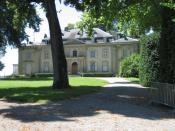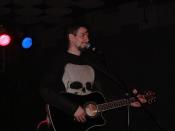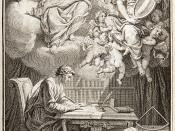One of the towering geniuses in literary and intellectual history, Voltaire personifies the Enlightenment. Recognized by his witty quotes and critical writings, which are characterized by brevity and lucidity, he is one of the best known French philosophers.
Born Francois-Marie Arouet in Paris in 1694, he later changed his name to Voltaire after a stint in the Bastille for his poetry and satires against French officials. Due to his habit of writing exactly what he thought, his numerous writings were the cause of much outrage. His Philosophical Letters on the English, published in 1732, was burned in 1734 and he was forced to escape into exile. After a few years, he was allowed to return to Paris and in 1745 he was appointed Historiographer Royal. In 1746, he was elected to the French Academy of Sciences. (Philosophy, 161-162)
One of his greatest works, Candide, is a flaming satire on the "optimism" of his time.
Much of the fuel for this satire came from the doctrine taught by the German philosopher Leibniz that "this is the best of all possible worlds." Shortly after publishing Candide, Voltaire moved to Geneva where he lived most of the rest of his life. There he published a few more books, including his memoirs, which were not published until after his death.
Between 1767 and 1772, Voltaire's philosophical crusade against injustice reached its height in an outpouring of works of every kind: satire, epistles, tragedies, stories, dialogues, pamphlets, and dictionary articles. He returned to Paris in February 1778 amid a delirious welcome, but became seriously ill and died May 30, 1778. Because he had not made a religious end to his life, he could not be buried in consecrated ground. His body was smuggled out of the capital by night and interred in Champagne. In 1791,


